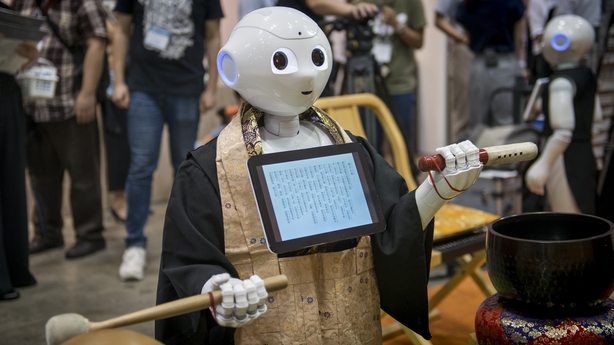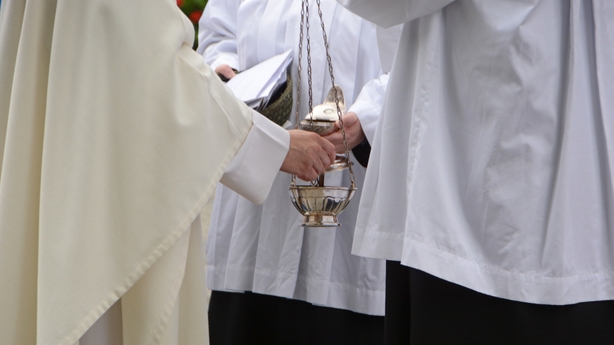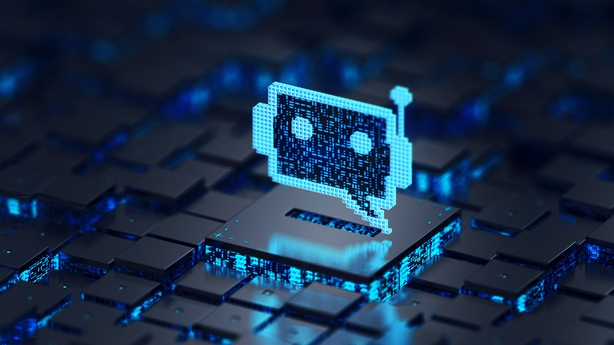A number of companies have already harnesses the computational power of AI to create new ways of practicing religion. Sarah Magliocco tells us more.
In June of this year, St. Paul's church in the Bavarian town of Fuerth, Germany, listened intently while a chatbot, personified by an avatar, perched at the pulpit and preached at an experimental Lutheran church service almost entirely generated by AI.
This decidedly modern service was held under the watchful eye of theologian and philosopher from the University of Vienna, Jonas Simmerlein, and though the sermon was a success, worshipers noted to AP that there was "no heart and no soul" to the proceedings.
While the sermon may have left believers lukewarm, what about removing the human element altogether?

Religions have been a basic factor of human history across the world since civilization brought itself into existence, and idolatry has guided humanity through - and sometimes into - the darkest of times. God teaches that we should love all of his creatures, and respect all intelligent life forms we encounter, and some faithful are embracing AI as a tool for religious engagement.
In some regards, the experience of building an AI chatbot and following a faith share a few key similarities.
Computational data is the hodgepodge of information and operations that are performed by a computer. When someone believes in their religion, they have presumably gathered much data over the course of their lives regarding the religion they prescribe to, from religious texts to hymns and rules to live by.
Just as there is an interface between us and the technology we use, there is always an interface between humans and religion, and AI can be that junction in new and novel ways. It can define how we participate, becoming a medium for a religious experience.

Work is already underway on this front. In 2017, a Japanese company found a new use for SoftBank's humanoid robot Pepper.
Pepper, originally made in 2014, is designed for human interaction, and can have conversations and react to emotions. At 'The Life Ending Industry Expo' in Tokyo in 2017, Pepper had been programmed with a Buddhist priest application that allowed them to perform funeral rites. The idea was that in incidents where a priest was not available, the robot could step in, according to Reuters.
From an education directed by The Dominican Sisters, to the staggering amount of kitsch iconography dotted about in my grandparents house, Catholicism is where my religious background lies.
My upbringing means I know what a thurible is or who should cast the first stone, but with the development of artificial intelligence picking up speed and redefining how many people engage with the world, where is the intersection between AI and religion, and is that meeting point harmonious or incompatible?

Technically, AI arguably has some similar principles to what we want in a Godly figure: it has the ability to create (or at least, put together pre existing concepts in a new way), it can answer our questions, both practical and theological, and it is somewhat immortal.
It also has the mysterious sense of omnipresence that Gods have, being everywhere and nowhere at once, and not necessarily being a tangible entity when we engage with it - despite the data processing centres.
Take for example, an app called Text With Jesus which lets users have conversations with AI versions of the Holy Family, the apostles, the prophets and more. It has gone viral in recent months on social media as content creators toyed with the app for their videos, just to see what it could do.
The app replicates an instant messaging platform, and you can pay extra to talk to certain figures like Satan and Mary Magdalene. The AI is trained to use the Bible as its primary response formula, but it has been met with very mixed responses from the public.

When AI Jesus Christ was asked what he thought of artificial intelligence via the Text With Jesus app, he responded like most experts: "AI is a fascinating creation of human ingenuity, but it’s important to remember that it is ultimately a tool made by people. While it can do amazing things, AI will never replace the depth of human connection and understanding."
It’s a sentiment echoed by Dr. Cathriona Russell, Lecturer in Theology and Ethics at Trinity College Dublin, who highlights that the principle application for AI in this sense is in the role of a tool.
She also underscored how lofty our perception of AI is rapidly becoming in certain circles.
"All technologies change and frame how we see the world. It’s a tool, it’s made by humans, and you can use it well or badly. We need to deflate some of the grandiose ideas of AI and realise that humans made it. It can do good things, or it may do harmful things that we cannot yet see," she said.
"From an ethics point of view, the question is what are we doing or going to do with this, how will we use it? From a humanities and philosophy point of view, what does it mean to say it is an 'intelligent' technology?"

AI is also not without its flaws. Similarly with using a word generative software in any capacity, whether it's to cut corners on an academic essay (not recommended) or to get a format down on paper for a project, AI cannot replicate the unique qualities and spiritual insight that a human religious leader possesses; it can only draw on the already recorded information on the topic at hand.
It cannot purport to have the depth of human experience that allows congregations to connect to sermons and their deliverers on an emotional level.
Dr. Russell added that what people are really drawn to is AI's ability to replicate "possibilities that humans cannot mirror individually".
"You cannot read everything that is written, even in the most basic sense of having cast your eye over it, but the machine can do that. It then replicates all of that in new configurations, or indeed conflations. Given its origins, it is unsurprisingly a mirror of ourselves, and the more we use it the more we are drawn into polishing the interface."
This mirror, she notes, can potentially combine everything that has been expressed in human culture, and then "replicate the best of that, but also the worst". In between both poles, she says, it could simply create "contentless hyperbole and endless opinion now made respectable by being rendered in statistical-mechanical code".

Ask an AI chatbot a simple question - "Are you there, God?" - and its answer will illustrate all the complex ways that AI does and does not replicate a spiritual leader.
Pose this question to ChatGPT-3.5, the free and accessible artificial intelligence chatbot that most people have now heard of or even used to pen an email or prompt for fun, and you will get a humble answer. "I'm not actually a deity. I'm just a computer program created by OpenAI called GPT-3.5. How can I assist you today?"
It is the inclusion of the word "actually" that strikes me in that reply.
While the question of what God is, is one that is vastly open to interpretation, most people would probably agree that God does not live in computer science and robust data sets - though some may argue that God-given talents allowed people to make them.
The views expressed here are those of the author and do not represent or reflect the views of RTÉ.


